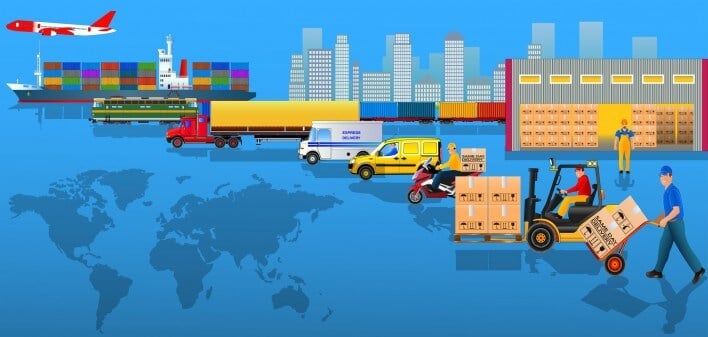Logistics-as-a-Service (LaaS): The New Growth Model in India

As India rapidly digitizes and expands its infrastructure, the logistics sector is experiencing a paradigm shift. Traditional models of asset-heavy supply chains are being replaced by Logistics-as-a-Service (LaaS) — a scalable, technology-driven approach that allows companies to outsource logistics operations in a modular, on-demand manner.
This model is poised to reshape the future of logistics in India, especially for small businesses, e-commerce platforms, and foreign investors seeking agile market access.
What is Logistics-as-a-Service (LaaS)?
Logistics-as-a-Service refers to cloud-based, third-party logistics platforms that allow businesses to use logistics functions like warehousing, inventory management, last-mile delivery, and freight forwarding on-demand, without owning the infrastructure.
It includes services like:
-
On-demand warehousing
-
Automated transportation management systems (TMS)
-
Data analytics for route optimization
-
API-integrated logistics platforms
Major LaaS players in India include Delhivery, Shiprocket, Shadowfax, Ecom Express, and newer startups like WareIQ and Pickrr.
Why LaaS is Booming in India
1. E-commerce Explosion
India’s e-commerce industry is projected to surpass $200 billion by 2026, according to IBEF. This rapid growth has driven demand for flexible, scalable logistics solutions.
LaaS helps businesses:
-
Expand to Tier II & Tier III cities
-
Handle fluctuating order volumes
-
Deliver faster using hyperlocal fulfillment models
2. SMEs Need Affordable Logistics
Small and medium enterprises (SMEs), which account for 30% of India’s GDP, lack the capital to build warehouses or transportation fleets.
LaaS enables SMEs to:
-
Outsource logistics affordably
-
Access pan-India delivery networks
-
Pay only for what they use
Example: A D2C fashion brand can use Shiprocket’s plug-and-play logistics solution without needing a warehouse or fleet.
3. Government Push for Digitalization
Initiatives like:
are creating a data-driven ecosystem. LaaS platforms can now integrate with government APIs to ensure real-time visibility, compliance, and optimized routing.
Key Benefits of LaaS in India
a) Cost Optimization
Companies can reduce CapEx by outsourcing:
-
Warehouse rentals
-
Fleet ownership
-
Logistics tech development
Savings range between 20-30%, especially for startups and exporters.
b) Scalability and Flexibility
Businesses can expand operations during peak seasons and scale down in lean periods — making it ideal for fashion, electronics, or festive e-commerce.
c) Tech-Driven Efficiency
Most LaaS providers use:
-
AI for demand forecasting
-
IoT for asset tracking
-
ML for delivery route optimization
This leads to better decision-making, fewer delays, and greater customer satisfaction.
d) Seamless Integration
API-based LaaS platforms can connect directly with:
-
ERP systems (e.g., SAP, Oracle)
-
E-commerce platforms (e.g., Shopify, Amazon)
-
Payment gateways
This streamlines inventory, fulfillment, and returns.
Challenges LaaS Faces in India
Despite its promise, LaaS adoption in India faces several hurdles:
1. Fragmented Logistics Network
India’s logistics landscape is still fragmented. Many LaaS providers depend on local transporters who may not meet tech or service standards.
2. Inconsistent Data Infrastructure
Rural and semi-urban regions may lack connectivity, affecting real-time tracking, visibility, and digital payments.
3. Regulatory Complexity
GST compliance, state-level permits, and route restrictions can complicate multi-state operations. However, India’s new logistics policy aims to streamline such issues.
Case Studies of LaaS Success in India
Delhivery
India’s largest LaaS startup, Delhivery, operates a full-stack logistics platform with AI-based forecasting, robotic sorting, and 24,000+ pin code coverage. Its services helped many SMEs scale nationally without investing in logistics infrastructure.
Read more: https://www.delhivery.com
WareIQ
A Y-Combinator-backed warehousing LaaS platform that provides smart fulfillment centers for e-commerce brands with one-day delivery capabilities in metro cities.
Read more: https://www.wareiq.com
Shadowfax
Started as a hyperlocal delivery provider, it now offers on-demand fulfillment, reverse logistics, and dark store solutions for major e-commerce and FMCG brands.
Read more: https://www.shadowfax.in
The Role of Indian Agents in LaaS Adoption
Local agents and logistics consultants play a pivotal role in:
-
Identifying region-specific LaaS partners
-
Ensuring regulatory compliance (e.g., GST, state permits)
-
Handling cross-border shipments for exporters
-
Managing last-mile partnerships with rural transporters
Platforms like India-Agent.com help foreign companies onboard local logistics partners that meet performance and compliance standards.
The Road Ahead: What to Expect by 2030
India’s logistics sector is expected to reach $500 billion by 2030, with LaaS capturing a significant share. Key growth drivers will include:
-
ONDC (Open Network for Digital Commerce), allowing democratized access to logistics
-
5G rollout, enabling real-time data exchange and predictive analytics
-
Increased investments in warehousing and cold chain infrastructure
Conclusion
Logistics-as-a-Service is not just a buzzword — it’s the future of Indian logistics. It enables efficiency, affordability, and reach for businesses of all sizes. As India evolves into a $5 trillion economy, scalable models like LaaS will be crucial to achieving logistics parity with developed nations.
For global businesses, embracing LaaS via trusted Indian agents ensures a seamless, compliant, and cost-effective market entry into one of the world’s fastest-growing economies.
